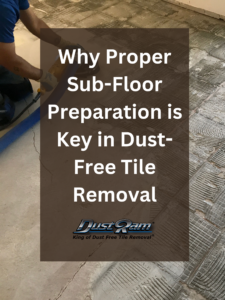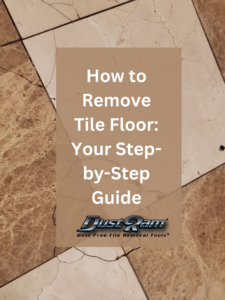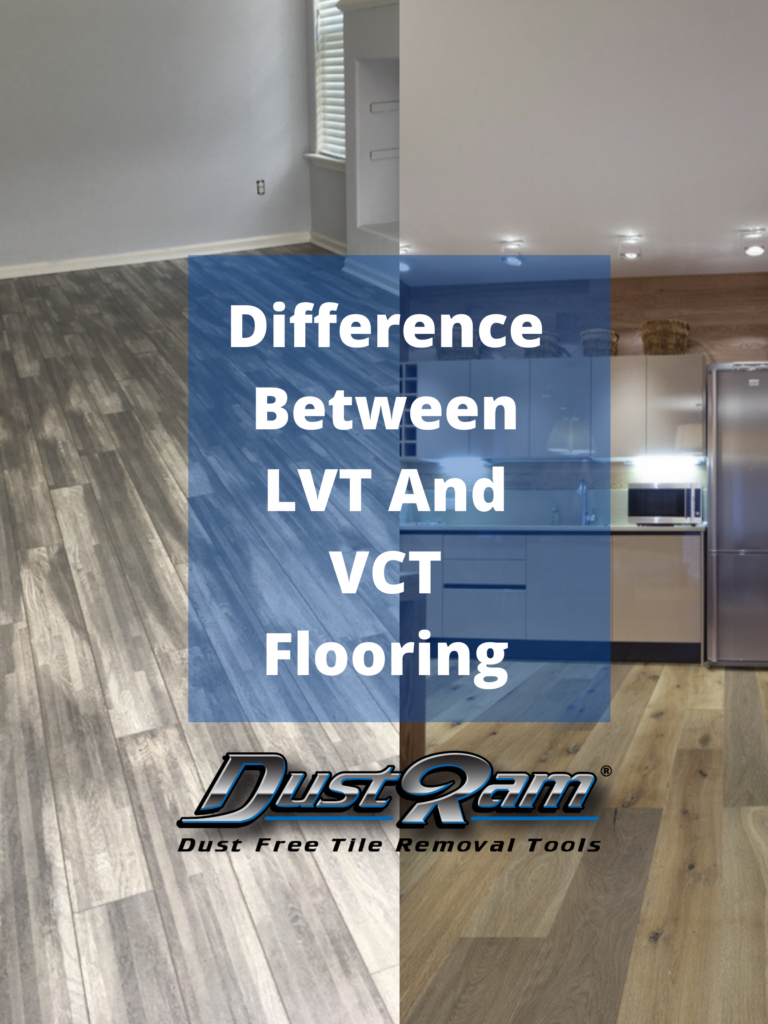
The Difference Between LVT and VCT Flooring
Are you pondering the differences between LVT vs VCT flooring? We’ve got the inside scoop to help you decide which one is best for your commercial or residential property! When it comes to finding the right type of flooring for your needs, it’s essential to weigh the pros and cons of each option. This includes understanding what advantages each flooring type brings to your property and whether you prefer specific traits of LVT or VCT flooring. Here is a detailed look at what each type of flooring is all about.
Related Post: Differences Between LVT vs LVP
What is LVT Flooring? (Luxury Vinyl Tile)
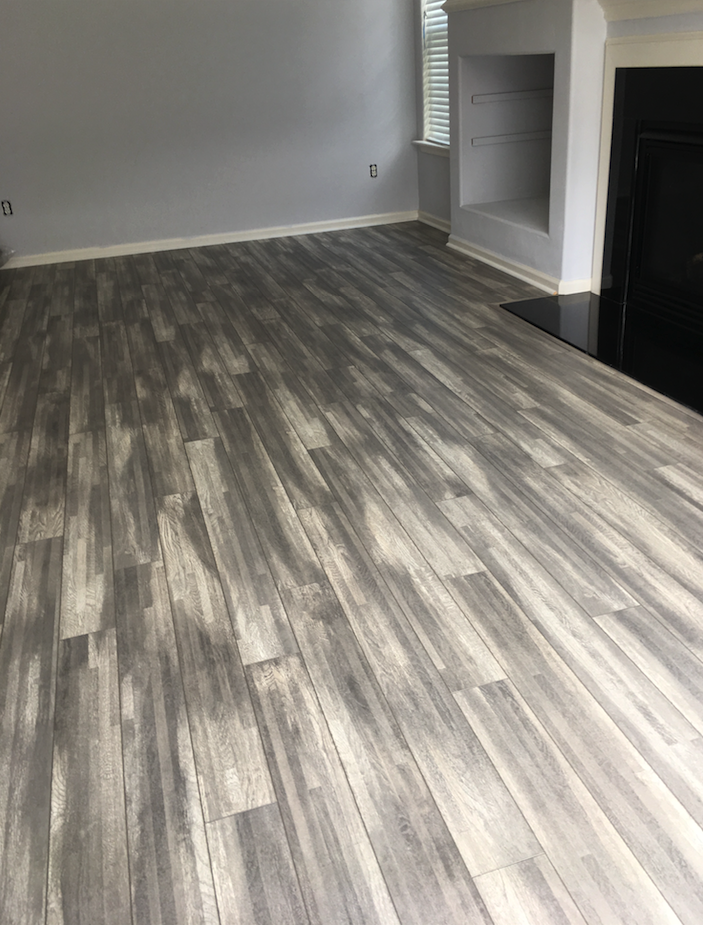
What is LVT Flooring? LVT stands for Luxury Vinyl Tile, a more purified material that is easier to customize based on look. It is also far more resistant to damage and tends to do well when it comes to the overall placement of the tiles.
What is VCT Flooring? (Vinyl Composite Tile)
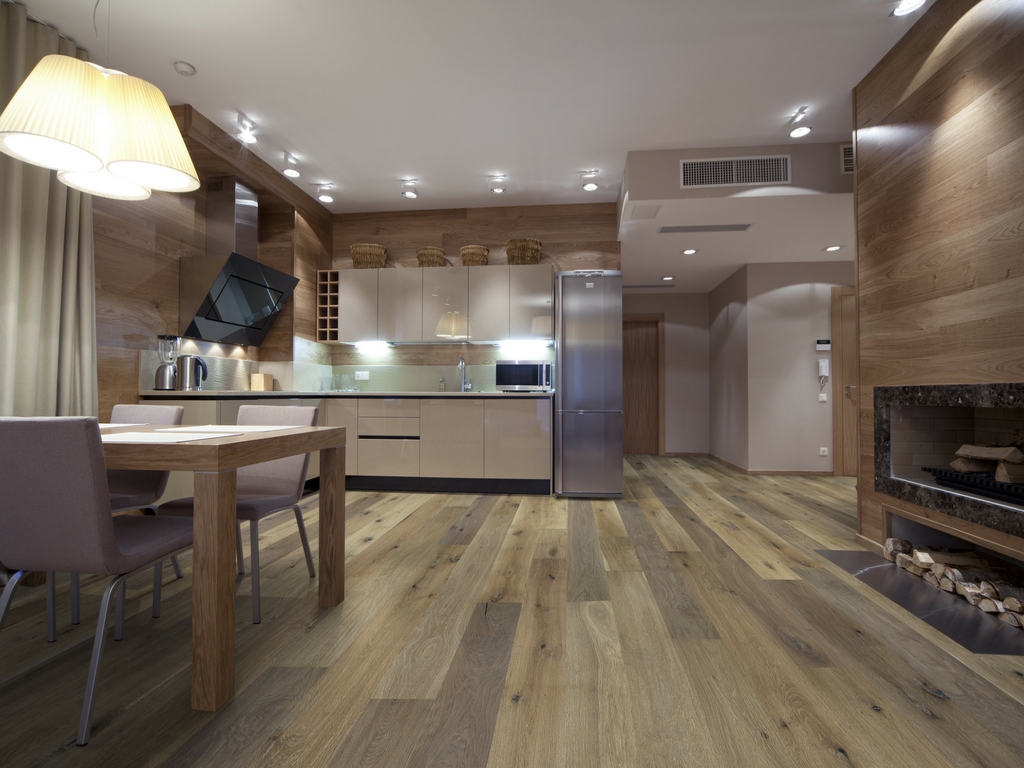
What is VCT Flooring? VCT stands for vinyl composite tile. This is made from a composite material that is aimed at creating a tile that is made of a minimized amount of vinyl in combination with limestone and other materials. The goal is to go with a more cost-effective material that still looks the part.
Related Post: Signs its Time to Replace Your Flooring
Key Differences Between VCT and LVT Flooring
1. Affordability
When it comes to understanding the differences between these two options, it’s important to focus on one of the most important elements that come into play. This would be none other than the budgetary demands of a project and what you are willing to pay. Most people are going to have a set budget and that needs to be considered. With LVT flooring, you are going to pay the premium price for vinyl tiling.
These are the best tiles available for your project and they are going to cost more than the VCT tiles. The reason has to do with the purity of the materials used to make them and how long-lasting they are. This leads to a greater upfront cost that must be factored into your project. If you are looking to find a good deal, you will have to figure out how much each one is going to cost once it is installed.
Related Post: How to Repair Tile Without Fully Replacing It
2. Aesthetics
It is always important to consider the stylistic nuances of each type of flooring. With LVT flooring, it is easier to get the type of look you are hoping for. Most people are going to have specific colors/patterns in mind that are going to go with the rest of their property. The reason LVT flooring tends to win people over has to do with its pleasing aesthetic.
The tile looks great, and it is personalized down to the last detail. This makes it ideal for those who are selective about the type of tiling they are going with, for their property. On the other hand, the VCT flooring tends to have a more structured approach with limited choices. There are still enough choices to find a good fit, but it is not going to be as tailored as the LVT flooring.
Related Post: All About Dustless Tile Removal Services
3. Permeability
A key factor that tends to play a role in how long the flooring lasts has to do with permeability. Due to how the VCT flooring is made, it is far more porous than its LVT counterpart. When a material is not as pure as the other, it is going to have micro holes in it that can open with time. These holes are not going to create issues in the short term but can become a problem down the road.
It is this permeability that must be accounted for when figuring out what works for your situation. It is important to note, both types of flooring are used in healthcare facilities. This means they last a long time and do well in one of the harshest conditions to be in. While permeability is something to think about, it is not a major issue if you are taking the time to maintain the VCT flooring.
Related Post: How to Prepare Your Floor for Tile
4. Thickness
VCT flooring tends to be thinner than LVT flooring. This has to do with the vinyl that is used to make the tile. With the VCT flooring, there is a bit of limestone and other materials involved in the formulation, which means it is thinner. While LVT flooring tends to be thicker and will last longer due to this reason.
For the most part, the flooring is not going to let you down whether you go with LVT or VCT flooring. However, there are times when the thickness can lead to a situation where there are cracks that start to form in the VCT flooring over time.
5. Durability
It is essential to realize high-traffic areas demand a longer-lasting solution. Flooring that is under duress all the time needs to last and that is not going to be an issue here. However, LVT flooring is known for lasting much longer than VCT flooring due to its makeup.
It is thicker, less permeable, and built to last. This is good for those who are going to be setting it in a high-traffic part of the property that is going to be used all the time. VCT flooring is known for lasting too but it is not as robust as LVT flooring.
6. Topcoat
This is a key detail that is often ignored when it comes to comparing the options. LVT training comes with a built-in topcoat which makes it last longer. On the other hand, VCT flooring does not, which means it must be applied after. This is not as easy to complete, which means it is possible gaps can be left with the topcoat. This makes it harder to maintain the VCT flooring inside the property.
By having a built-in topcoat, it is known for being easier to manage and you will know it is going to be balanced from one end to the other. For those who are thinking about going with a dustless tile removal solution, it’s best to reach out to Dustram for more information. This is a one-stop option that can deliver premium results and is not going to cut corners along the way.
In Conclusion
VCT
LVT
Vinyl composite tile
has a lower static load resistance than LVT
LVT has a higher pounds per square inch rating. A Higher rating essentially indicates the ability to handle higher stati
loads
Installation can take longer due to minimal tile size variations
LVT makes for faster installation due to larger tile sizes
Costs are typically lower upfront however, maintenance can rack up this number
Cost may be a bit higher upfront but the maintenance cost overtime is lower
vinyl composite tile will need regular polishing
LVT is relatively easier to maintain and clean
For related topics to the differences between LVT and VCT flooring, make sure to check out the blog. We cover the latest news and trends on everything flooring and dustless tile removal. For comments, questions, or concerns, be sure to leave a comment below.


